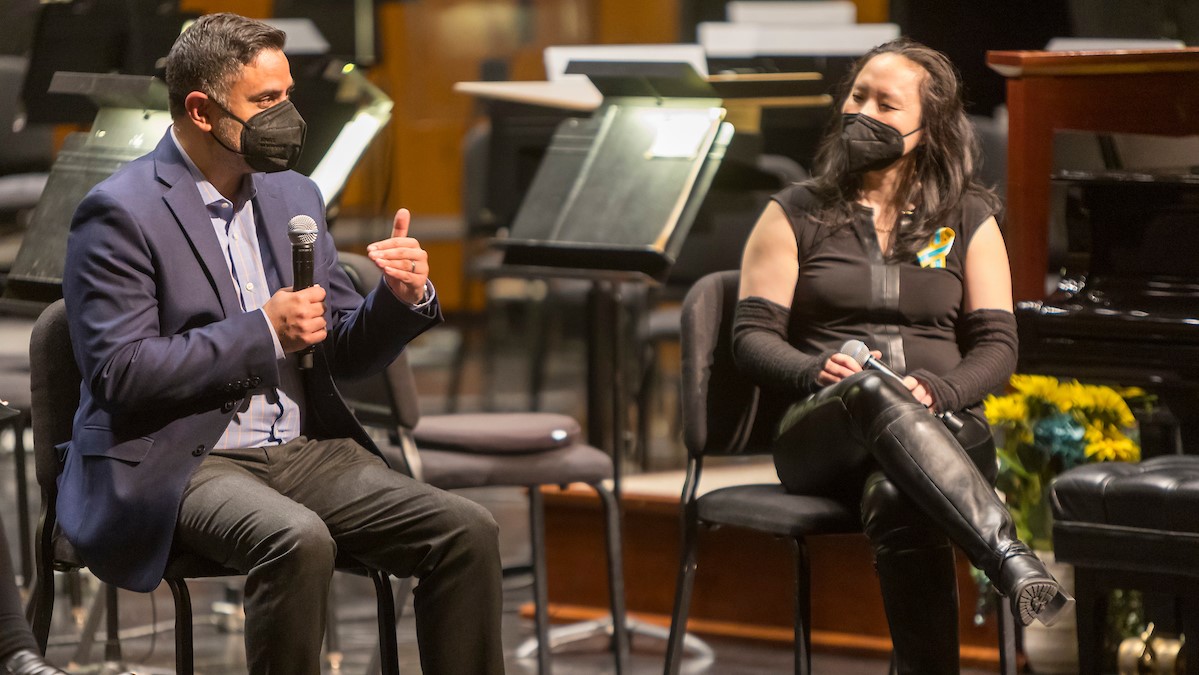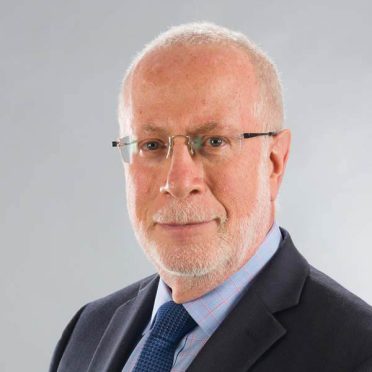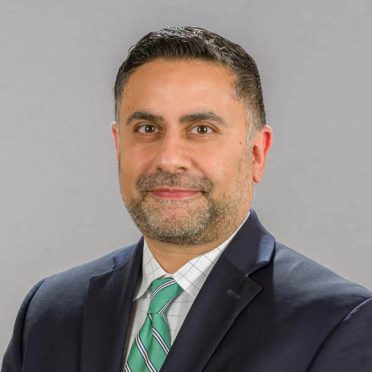Music can relax you, bring back memories of certain times in your life or bring a smile to your face.
Research shows a clear link between health and music: music therapy can be used to help combat depression and heal trauma, and listening to music has been shown to reduce heart rate, lower blood pressure and decrease stress levels.
Before the Hartford Symphony Orchestra concert Friday evening, Javeed Sukhera, MD, PhD, chair of psychiatry, Institute of Living, spoke about the history of the IOL and how music can be used for healing. The conversation with HSO Music Director Carolyn Kuan included a candid discussion about depression.
The concerts on Friday, Saturday and Sunday, sponsored by the IOL, featured the works of Sergei Rachmaninoff and Pyotr Ilyich Tchaikovsky, legendary artists who endured lifelong struggles with depression. Soloist Henry Kramer performed Rachmaninoff’s Piano Concerto No. 3, and the program also featured Tchaikovsky’s Symphony No. 5 at the Belding Theater at the Bushnell. For the Sunday matinee, Hank Schwartz, MD, psychiatrist-in-chief emeritus at the IOL, participated in the pre-concert conversation.
Kuan spoke about how Rachmaninoff and Tchaikovsky both struggled with depression, and how in one of Tchaikovsky’s symphonies the journey from darkness to light can be heard in the different movements.
Showcasing these two artists at a time when the IOL is celebrating 200 years as a leader in the field of psychiatry is a poignant reminder that struggles with mental health and addiction can happen to anyone, but there is hope for recovery.
Dr. Sukhera spoke about how as a child and adolescent psychiatrist he believes music creates space for healing.
“When listening to music, children feel a peace and a freedom to be themselves,” he said. “It allows for healing at the individual’s own pace.”
He said that sometimes he will talk about song lyrics with clients, what their favorite songs are and why they resonate with them, what the lyrics mean to them and explore their feelings and emotions through them.
He also spoke about making playlists for different times in his life, and how listening to them can bring him back to that time in his past.
Kuan spoke about her own struggles with depression, and the stigma some face. She said especially with her Chinese background, it was something she struggled to come to terms with. “It is not something we talk about in my culture, it took me a long time to seek help,” she said. “The more people can talk about and acknowledge their struggles, the better.”
Dr. Sukhera said reaching out if you are struggling is the bravest thing you can do. “I hope we can recognize what a gift our vulnerability is,” he said. “That it is part of what binds us together as a humanity.”
Colette Hall, Director of Artistic Operations at the Hartford Symphony Orchestra said music has a healing presence. “I encourage people to take the time and space to enjoy it in their own lives,” she said.
The IOL is celebrating its 200th anniversary in 2022 and 2023 to match the years it was founded and incorporated. Events will include the Black & Red gala in June and other public events.
Kuan was appointed the 10th musical director in the 2010-11 season, as the first female and youngest music director in the history of the HSO. She is recognized as one of the most innovative, exciting and outstanding conductors of her generation.
The concerts featured stunning piano solos by Kramer, who garnered a standing ovation at Friday night’s performance.
Dr. Sukhera spoke about the Institute of Living 200th anniversary celebration and the Hartford Symphony concert on WTNH Channel 8:




